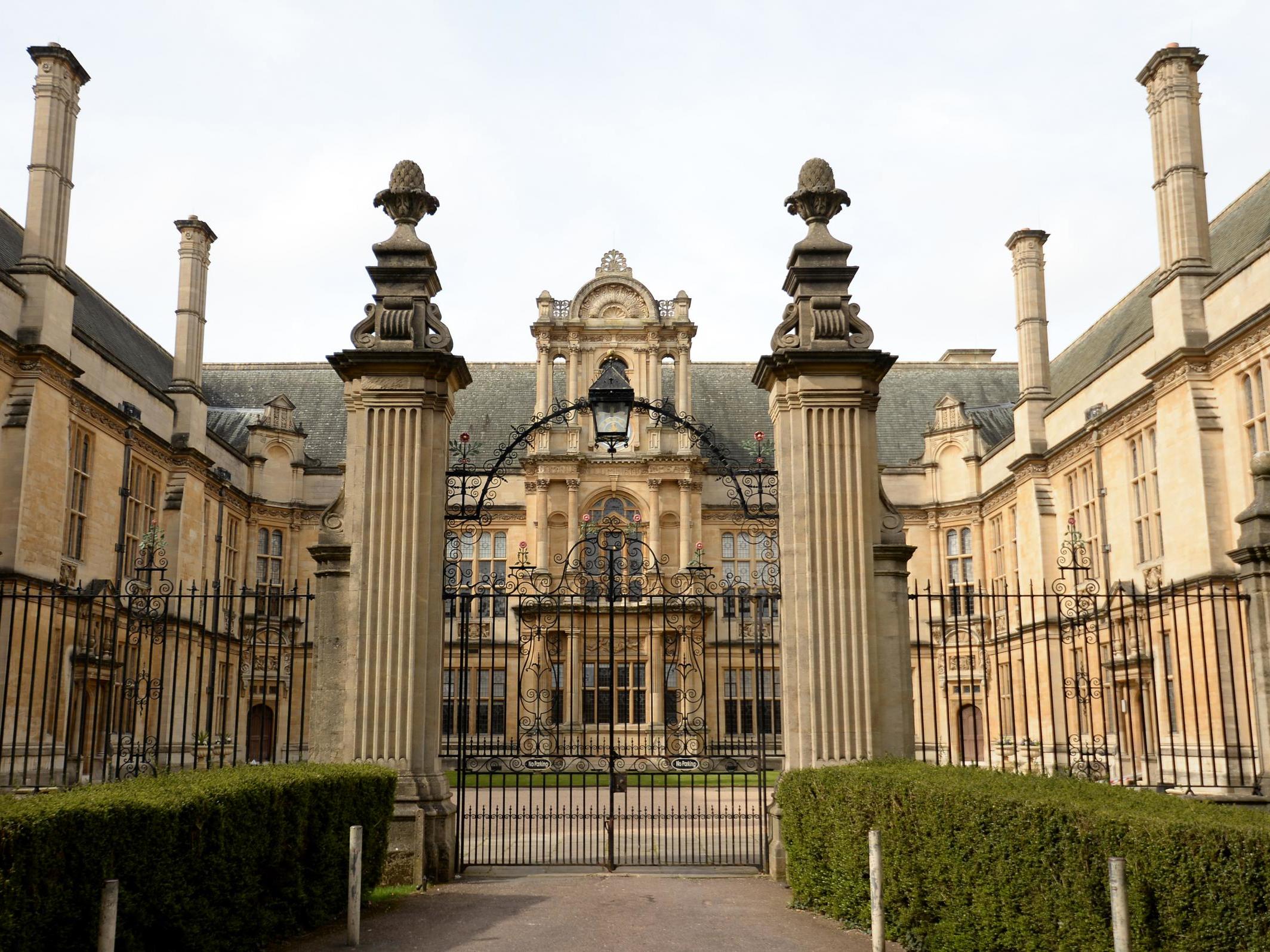One in four BAME people in Britain want ‘name-blind’ university applications
Majority say more effort needs to be made to boost diversity in higher education

More than a quarter of Bame Britons believe removing names from university applications would widen access, compared to less than a sixth of white Britons, research reveals.
The majority of people in ethnic minorities (64 per cent) say more effort needs to be made to increase university applications from minority groups, according to data shared with The Independent.
Sector leaders are now calling for “name-blind” university applications to be looked at again in a bid to address concerns around unconscious bias.
The findings come as universities such as Oxford and Cambridge have come under fire for a lack of diversity.
The vice-chancellor of Oxford admitted that the institution’s intake still “reflects the deep inequalities” in society this week as figures revealed that less than a third of Oxford colleges admitted three or fewer black applicants in the past three years.
The survey by Opinium, of more than 2,000 people weighted to be nationally representative, reveals that people from ethnic minority groups are more likely to identify a clear link between a good education and success – and yet only half of ethnic minorities feel that higher education is easily accessible to them.
The data comes after ministers and the Office for Students regulator (OfS) have repeatedly called on elite UK universities to admit more students from ethnic minorities.
Labour MP David Lammy, who last year criticised Oxford’s “glacial progress” in boosting diversity as he claimed the university was a “bastion” of white, middle-class privilege, said: “The feeling that the Bame community have of being underrepresented at our universities is not just mere perception.”
Dr Zubaida Haque, deputy director of the Runnymede Trust, a race equality think tank, said it was not surprising people belonging to ethnic minorities felt name-blind university applications might improve their prospects.
Recent research carried out by academics based at Oxford University found that British citizens from ethnic minority backgrounds have to send, on average, 60 per cent more job applications to get a positive response from employers compared to their white counterparts.
Ms Haque said: “Name-blind CVs will certainly help to minimise overt discrimination by HR and admissions officers.
“But the problem is, it doesn’t address racial biases – it merely removes the opportunity at recruitment stage and it doesn’t prevent discrimination happening at a later stage.”
Ucas released a report on “name-blind” applications in 2017, after a pilot study at six universities, but it found no conclusive evidence that masking applicants’ names led to significantly different outcomes.
However, in light of the Opinium survey findings, the OfS has said it would be open to further research into name-blind university applications to see if there are ways that the approach could work.
Paul Cottrell, acting general secretary of the University and College Union, said the union would also welcome any reforms to allow students to apply to university without having to give their name. He said: “This should remove any unconscious bias and help level the playing field for university applicants.”
Geoff Barton, general secretary of the Association of School and College Leaders, added that it could be worth exploring name-blind applications again to counter “unconscious bias” and make the system fairer.
The calls come after The Independent revealed last year that black students seeking a place at university are 21 times more likely to have their applications investigated for suspected false or missing information than their white counterparts, which prompted accusations of “institutional racism”.
Samuel Babarinde, one prospective black student who had his university application flagged by Ucas, decided to pull out of the application process after he found Ucas’s investigation to be “intimidating”.
But a number of organisations, which are aiming to increase applications from black students to the UK’s most selective universities, say that name-blind applications are not the only answer.
Naomi Kellman, founder of Target Oxbridge, said more outreach to pupils earlier on in secondary school, as well as access to role models, would help to widen access. “There is no single solution to this challenge so we must be doing multiple things,” she said.
Mary Bonsu, a black first-year law student at Oxford University, added that removing names from applications could help address bias but she added that it would only be a “temporary fix”.
It would not be as effective at universities that interview before offering a place, she added. Instead, universities should reach out to students earlier on to encourage them to apply, the 19-year-old said.
The former state school student, whose father works in a shop and whose mother is a cleaner, told The Independent: “No one in my family had ever finished sixth form. Let alone go to university.
“I thought Oxford was just a publishing thing, I didn’t know it was a university until the end of Year 11.”
On the survey findings, Sarah Stevens, director of policy at the Russell Group, which represents the most selective universities, acknowledged that “more needs to be done” to boost diversity on campus.
“Through sustained outreach and mentoring, summer schools and other initiatives, [members] support pupils who want to study at a selective university, helping them to achieve their goal,” she added.

Helen Thorne, external relations director for Ucas, said: “Universities and colleges are committed to ensuring that admissions processes are fair and transparent for all students, and employ a range of robust strategies and policies to achieve this.
“Minimising the risks of unconscious bias is an important part of this, and it’s encouraging that over 110 universities have used training and good practice resources in the last year.”
A spokesperson for Universities UK said: “Universities are working hard to achieve greater equality of opportunity, including in England through targeted investment and interventions set out in their access and participation plans.”
Join our commenting forum
Join thought-provoking conversations, follow other Independent readers and see their replies
Comments
Bookmark popover
Removed from bookmarks